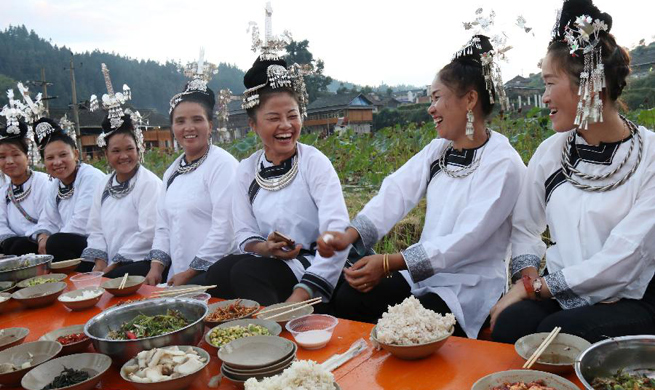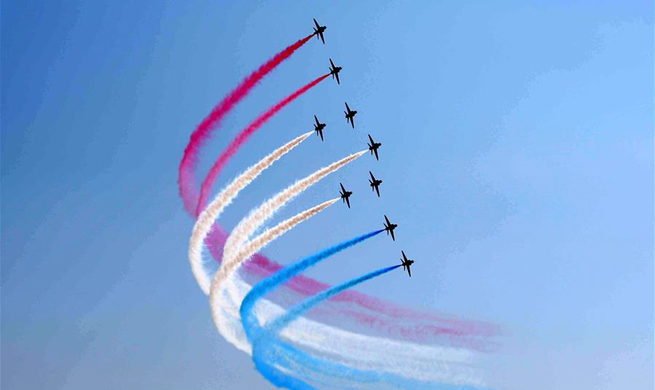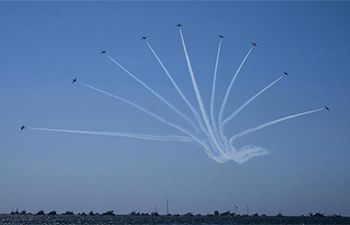SUVA, Oct. 6 (Xinhua) -- The 13th Triennial Conference of Pacific Women and 6th Meeting of the Pacific Ministers for Women wrapped up in Suva, the capital of Fiji on Friday as participants agreed to a series of recommendations and outcomes in empowering women.
One of the areas of focus was the need to compile data on women's contribution to economics, unpaid work, care and conditions of work.
Fiji's Minister for Women Mereseini Vuniwaqa acknowledged the importance of research to better inform governments.
"The lack of data here in our nation to drive and inform policy making, we see that as a challenge and I'm glad that it's come out very strongly in the outcomes document as well," she said.
Director General for the Pacific Community Colin Tukuitonga highlighted that another key strategy for the conference was the finalization of a revised Pacific Platform for Action that sets out a 12-year roadmap.
"To make sure that policy, legislation, programs and services have a clear and explicit set of expectation with respect to measures that we think would drive gender equality," Colin said.
Around 300 delegates nearly 20 countries attended the workshop which was themed on the economic empowerment of Pacific women.
The Pacific region has some of the highest rates of VAW (violence against women) in the world, where two out of three women reported experiencing physical or sexual violence by a partner - double the global average, said a report from the conference published on Friday.
Senior Program Officer (Gender) for the Pacific Women Support Unit Tara Chetty, presented research findings from the Solomon Islands and Papua New Guinea (PNG) led by the Australian National University in partnership with the International Women's Development Agency (IWDA) entitled "Do No Harm - Understanding the Relationship between Women's Economic Empowerment (WEE) and Violence against Women in Melanesia."
"The design of WEE must address gender norms and power relationships in the household, otherwise we add to women's workloads while putting women more at risk of violence," said Chetty.
There is a direct relationship between women's access to income and an increase in violence and control - which hinders WEE and significantly impedes women's ability to fulfil their potential - including education and employment opportunities, income earning capability and advancement in the workplace.
Reports by the Asian Development Bank Country Gender Assessment for Fiji (2015) stated that the estimated annual cost of intimate partner violence is 7 percent of Gross Domestic Product (GDP). This is due to higher turnover in the workplace, lower individual work performance, increased health expenses and absenteeism or human resources costs, said Shabina Khan, UN Women EVAW (ending violence against women) Project Coordinator for Fiji and Kiribati.

















